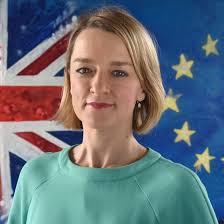The Influence of Laura Kuenssberg on UK Journalism

Introduction
Laura Kuenssberg is a prominent figure in UK journalism, best known for her role as the BBC’s political editor. Her insights greatly influence public understanding of political events, making her a key player in British media. As the first woman to hold this prestigious position, her work has shaped the coverage of critical issues, particularly during times of political upheaval.
Current Role and Responsibilities
In her position, Kuenssberg reports on significant developments in UK politics, offers analysis, and provides updates to the public, especially during elections and key parliamentary debates. Her recent coverage of the Conservative leadership race has been particularly notable, attracting both praise and criticism from various quarters. Kuenssberg’s ability to cut through political jargon and present information clearly has resonated with audiences, allowing her to maintain a prominent voice in contemporary media.
Controversies and Challenges
Despite her success, Kuenssberg has also faced her share of controversies. Some political figures have accused her of bias, questioning her neutrality as she navigates the complex media landscape. This scrutiny highlights the challenges journalists face in maintaining credibility while reporting on polarising topics. Furthermore, as a female journalist in a male-dominated field, she has become a symbol of progress while also confronting sexism and media scrutiny.
Impact on Journalism
Kuenssberg’s contributions extend beyond her immediate reporting. Her approach to political journalism has set a benchmark for younger journalists, inspiring a new generation to engage with political issues critically. Moreover, her willingness to address uncomfortable truths has sparked discussions about transparency and accountability within government and media alike, stressing the important role journalism plays in a functioning democracy.
Conclusion
As Laura Kuenssberg continues to shape the landscape of British journalism, her significance is undeniable. With her insightful reporting and commitment to highlighting the facts, she not only informs the public but also encourages a more engaged and aware society. Looking ahead, her role will be vital in shaping the narrative of UK politics, especially as the nation faces new challenges and changes in leadership. Readers can expect her to remain at the forefront, shedding light on critical issues and holding those in power accountable.









